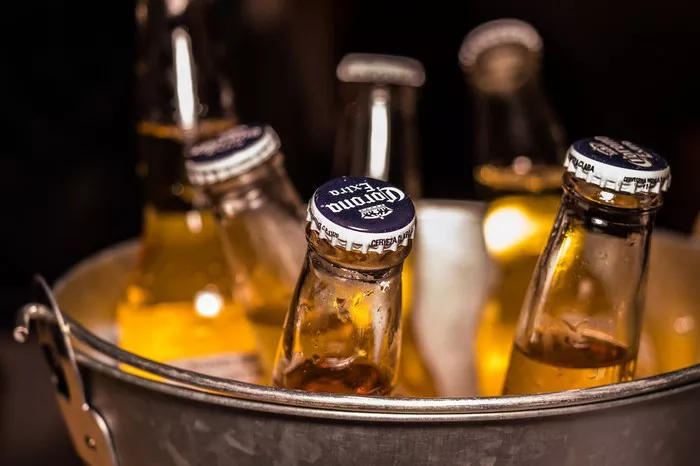For many people, enjoying a cold beer is a cherished pastime, but if you have diabetes, choosing the right beer can be a challenging task. Beer is known for its carbohydrate content, which can affect blood sugar levels. However, that doesn’t mean you have to abstain from beer altogether. In this comprehensive guide, we will explore the world of beer and help you navigate the best options for diabetics. We’ll discuss factors to consider, low-carb beer choices, and strategies for moderate consumption while managing diabetes.
1. Understanding Diabetes and Beer
Before we dive into the best beer options for diabetics, it’s essential to understand the relationship between diabetes and beer consumption.
Carbohydrates and Blood Sugar: The primary concern for diabetics when it comes to beer is its carbohydrate content. Carbohydrates can quickly elevate blood sugar levels, which is a significant consideration for those with diabetes.
Alcohol Content: Alcohol can affect blood sugar levels both by raising and lowering them, depending on the type and quantity of alcohol consumed. It’s crucial to strike a balance between enjoying a beer and maintaining blood sugar control.
Moderation is Key: The key to enjoying beer as a diabetic is moderation. Understanding your body’s response to alcohol and monitoring your blood sugar levels is essential.
2. Factors to Consider When Choosing Beer
Several factors come into play when choosing a beer that’s diabetes-friendly.
Carbohydrate Content: The most crucial factor is the carbohydrate content of the beer. Diabetics should opt for beers with lower carbohydrate levels to minimize their impact on blood sugar.
Alcohol by Volume (ABV): Beers with higher alcohol content can have a more significant impact on blood sugar levels. Choosing beers with moderate to low ABV can be a safer option.
Flavor and Style: Your personal preferences also matter. While we’ll discuss low-carb options, it’s essential to find a beer that you enjoy, as you’re more likely to consume it in moderation.
Packaging: Consider the serving size and packaging. Smaller bottles or cans can help you control portion sizes and monitor your alcohol intake more effectively.
Mixers and Additives: Be aware of mixed drinks or beer cocktails that may contain additional sugars or sweeteners, which can significantly impact blood sugar levels.
3. Low-Carb Beer Options
When it comes to low-carb beer options, several choices are available. These beers are specifically designed to have reduced carbohydrate content, making them more suitable for diabetics.
Light Beers: Light beers are generally lower in carbohydrates and calories. They are brewed to provide a similar taste to regular beers but with fewer carbohydrates. Brands like Bud Light, Coors Light, and Miller Lite offer low-carb options.
Low-Carb Craft Beers: Some craft breweries produce low-carb and low-calorie beer options. These beers often have unique flavors and styles, offering diabetics a broader range of choices.
Select Low-Carb Imports: Some imported beers have lower carbohydrate content. Beers like Guinness Draught or Amstel Light are examples of imported options with reduced carbs.
Hard Seltzers: Although not beer in the traditional sense, hard seltzers have gained popularity for their low carbohydrate content. Brands like White Claw and Truly offer various flavors and low-carb options.
Non-Alcoholic Beer: Non-alcoholic or alcohol-free beers are an excellent choice for diabetics looking to enjoy the taste of beer without the impact on blood sugar. These beers often have low to zero carbs.
4. Tips for Moderate Beer Consumption
While choosing the right beer is essential for diabetics, moderation is equally crucial. Here are some tips for enjoying beer while managing your diabetes.
Monitor Blood Sugar: Always monitor your blood sugar levels before, during, and after consuming alcohol. This will help you understand how your body responds to beer and make informed choices.
Set Limits: Establish specific limits for the amount of beer you can consume in one sitting. For most adults, moderate alcohol consumption is defined as up to one drink per day for women and up to two drinks per day for men.
Stay Hydrated: Drinking water along with beer can help reduce the risk of dehydration, which can affect blood sugar levels.
Consume with Food: Eating a meal or snack while drinking beer can slow down the absorption of alcohol and minimize its impact on blood sugar.
Avoid Sugary Mixers: If you’re enjoying mixed drinks, avoid sugary mixers and opt for diet or sugar-free options to minimize carbohydrate intake.
5. Potential Risks and Precautions
It’s essential to be aware of the potential risks and precautions associated with beer consumption for diabetics.
Hypoglycemia (Low Blood Sugar): Alcohol can lead to low blood sugar, especially if you’re on medication or insulin. Be prepared with glucose tablets or snacks in case your blood sugar drops.
Medication Interaction: Some diabetes medications can interact with alcohol, potentially leading to adverse effects. Consult with your healthcare provider about the safety of consuming alcohol with your specific medications.
Long-Term Health Risks: Excessive alcohol consumption can lead to long-term health risks, including the potential exacerbation of diabetes-related complications. It’s essential to be mindful of the cumulative effects of alcohol over time.
6. Alternatives to Beer
For those who find it challenging to manage blood sugar levels while consuming beer, there are alternative alcoholic beverages to consider.
Wine: Wine, particularly dry wines like red or white, tends to have lower carbohydrate content compared to beer. It’s a suitable option for many diabetics.
Spirits: Spirits like vodka, whiskey, or gin, when consumed in moderation and with sugar-free mixers, can be a diabetic-friendly choice.
Non-Alcoholic Options: Non-alcoholic or alcohol-free beer, as well as alcohol-free wine, can provide the taste of traditional alcoholic beverages without the impact on blood sugar.
Conclusion
Diabetes doesn’t have to mean giving up on enjoying a beer responsibly. By understanding your body’s response to alcohol, making informed choices, and practicing moderation, you can savor a cold one without compromising your health.


